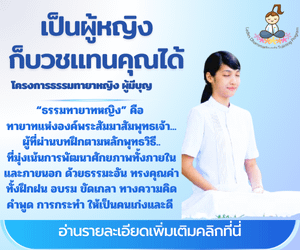ในพุทธศาสนา ศีลข้อที่ 5 คือข้อที่เกี่ยวข้องกับการเว้นจากการเสพสุราและของมึนเมาที่ทำให้สติขาดพร่อง ศีลข้อนี้มีความสำคัญในการฝึกฝนตนให้มีสติสัมปชัญญะ เพราะสิ่งมึนเมามักจะนำไปสู่การกระทำที่ไม่ดี และก่อให้เกิดโทษต่อทั้งตนเองและผู้อื่น ดังนั้นการรักษาศีลข้อที่ 5 จึงเป็นการฝึกฝนทางจิตใจที่ทำให้เราสามารถดำรงชีวิตอย่างมีคุณธรรมและสติสัมปชัญญะได้อย่างมั่นคง
องค์แห่งศีลข้อที่ 5 หรือเงื่อนไขที่ทำให้ถือว่าผู้รักษาศีลบกพร่อง มีทั้งหมด 4 ข้อ ซึ่งหากมีการกระทำครบองค์ทั้ง 4 ข้อถือว่าได้ผิดศีลข้อนี้ บทความนี้จะอธิบายถึงองค์แต่ละข้ออย่างละเอียดเพื่อความเข้าใจที่ถ่องแท้และการนำไปปฏิบัติอย่างถูกต้อง
ความหมายและเหตุผลในการรักษาศีลข้อที่ 5
ศีลข้อที่ 5 เป็นการเว้นจาก การเสพสุราและของมึนเมา รวมถึงสิ่งเสพติดที่อาจทำให้สติปัญญาขาดพร่องและขาดการยับยั้งชั่งใจในสิ่งที่ไม่ควร โดยพุทธศาสนามองว่าสิ่งมึนเมาจะทำให้คนขาดสติ เกิดอารมณ์ที่รุนแรง และอาจทำให้เกิดการกระทำที่ไม่ดีทั้งทางกายและทางวาจา ด้วยเหตุนี้จึงมีการตั้งศีลข้อที่ 5 ขึ้นมาเพื่อให้ผู้ปฏิบัติธรรมมีสติในการดำเนินชีวิต
องค์แห่งศีลข้อที่ 5: องค์ประกอบที่ทำให้เกิดการละเมิดศีล
องค์แห่งศีลข้อที่ 5 มี 4 ข้อ ซึ่งแต่ละข้อนั้นเป็นเงื่อนไขที่ต้องครบถ้วนจึงจะถือว่าผู้รักษาศีลบกพร่องในการถือศีลข้อที่ 5 โดยองค์ประกอบทั้ง 4 ข้อนี้คือ
- สุรา-เมรัยหรือของมึนเมา
สิ่งที่ถูกนำมาเสพต้องเป็นสุรา ของมึนเมา หรือสิ่งเสพติดที่มีฤทธิ์ทำให้สติขาดพร่อง เช่น สุรา (เหล้า เบียร์ ไวน์) ยาเสพติดที่มีฤทธิ์ต่อระบบประสาท รวมถึงสิ่งเสพติดที่อาจเป็นภัยต่อสติและจิตใจ เช่น กัญชา ฝิ่น ยาบ้า เป็นต้น การเสพสิ่งเหล่านี้มีผลให้จิตใจขาดการยับยั้งชั่งใจ และอาจก่อให้เกิดความประพฤติที่ผิดศีลธรรมในลำดับถัดไป - มีจิตคิดจะดื่มหรือเสพ
การรักษาศีลในข้อที่ 5 นั้น ไม่ใช่เพียงแค่การงดเสพสิ่งมึนเมา แต่ยังหมายถึงการงดจิตใจที่ต้องการดื่มหรือเสพสิ่งมึนเมานั้น ๆ อีกด้วย ดังนั้นหากผู้ถือศีลมีความตั้งใจที่จะเสพ แม้ว่าจะยังไม่ได้เริ่มลงมือดื่มหรือเสพ ก็ถือเป็นส่วนหนึ่งของการผิดศีล การฝึกจิตใจให้ปลอดจากความต้องการเสพสิ่งมึนเมาจึงเป็นขั้นตอนสำคัญในการรักษาศีลข้อนี้ - พยายามที่จะดื่มหรือเสพ
หลังจากที่มีจิตใจตั้งใจที่จะเสพสิ่งมึนเมาแล้ว หากบุคคลนั้นลงมือพยายามเสพหรือหยิบจับสิ่งเสพติดนั้น ๆ ถือว่าขาดการยับยั้งชั่งใจในเบื้องต้น การกระทำนี้บ่งบอกถึงความพยายามที่จะเสพสิ่งมึนเมาอย่างแท้จริง แม้ว่าจะยังไม่ได้ดื่มหรือเสพก็ตาม การขาดการควบคุมในระดับนี้บ่งบอกถึงการขาดสติในตัวเอง - ดื่มหรือเสพเข้าไปแล้ว
ข้อสุดท้ายนี้คือการที่บุคคลได้ดื่มหรือเสพของมึนเมานั้นเข้าสู่ร่างกาย หากครบองค์ประกอบทั้ง 4 ข้อนี้ การกระทำดังกล่าวถือว่าเป็นการผิดศีลข้อที่ 5 อย่างสมบูรณ์
ความสำคัญของการรักษาศีลข้อที่ 5 และผลกระทบเมื่อผิดศีล
การรักษาศีลข้อที่ 5 มีความสำคัญอย่างยิ่งในพุทธศาสนา เพราะการเสพของมึนเมาทำให้สติขาดพร่อง เมื่อขาดสติก็มีโอกาสที่จะกระทำการผิดศีลข้ออื่น ๆ อีก การดื่มสุราหรือเสพสิ่งมึนเมาอาจนำไปสู่การพูดหรือการกระทำที่เป็นการเบียดเบียนผู้อื่น เช่น การพูดโกหก พูดคำหยาบ การกระทำรุนแรง และอาจล่วงล้ำถึงการลักขโมยหรือล่วงละเมิดทางเพศ เนื่องจากจิตใจที่ไม่มีสติอาจทำให้สูญเสียการควบคุมพฤติกรรม
นอกจากนี้ การเสพสิ่งมึนเมายังมีผลเสียทางร่างกาย ทำให้เกิดโรคภัยไข้เจ็บ เช่น โรคตับ โรคประสาท ทำให้มีอาการติดและขาดไม่ได้ รวมถึงมีผลกระทบทางสังคม ทำให้เกิดความเสียหายต่อครอบครัวและผู้คนรอบข้างได้
วิธีการฝึกฝนเพื่อรักษาศีลข้อที่ 5 ให้มั่นคง
- ฝึกสมาธิ
การฝึกสมาธิช่วยให้จิตใจมีความมั่นคงและสามารถควบคุมตนเองได้ดีขึ้น ช่วยลดความอยากและความต้องการที่จะเสพสิ่งมึนเมา นอกจากนี้สมาธิยังช่วยเสริมสร้างสติในการพิจารณาความคิดของตนเอง - หลีกเลี่ยงสภาพแวดล้อมที่ก่อให้เกิดความอยาก
การอยู่ในสภาพแวดล้อมที่กระตุ้นให้เกิดความอยากหรือความต้องการ เช่น การเข้าสถานบันเทิงหรืออยู่ร่วมกับคนที่เสพสิ่งมึนเมา อาจทำให้จิตใจอ่อนแอ การหลีกเลี่ยงสภาพแวดล้อมเหล่านี้เป็นการป้องกันไม่ให้เกิดการละเมิดศีล - สร้างกำลังใจให้ตนเอง
การตั้งเป้าหมายในการรักษาศีลอย่างมั่นคงจะทำให้มีแรงบันดาลใจที่ชัดเจน นอกจากนี้ การพัฒนากำลังใจที่เข้มแข็งจะช่วยให้ผู้รักษาศีลมีพลังในการฝ่าฟันต่อการยั่วยวนใจต่าง ๆ - การสวดมนต์
การสวดมนต์ช่วยให้จิตใจสงบและเพิ่มพลังแห่งการตัดสินใจที่ดี ช่วยให้มีความอดทนและสามารถละเว้นการเสพสิ่งมึนเมาได้มากขึ้น
บทสรุป
การรักษาศีลข้อที่ 5 เป็นหลักการหนึ่งในการฝึกฝนตนเองให้เป็นผู้ที่มีสติสัมปชัญญะ สามารถควบคุมความอยากและความต้องการได้ ทั้งยังเป็นการป้องกันตัวเองจากการกระทำที่ผิดศีลอื่น ๆ และผลเสียที่จะเกิดขึ้นในชีวิตของตนเองและผู้อื่น การเข้าใจองค์แห่งศีลและปฏิบัติตามศีลข้อนี้ให้ครบถ้วนจะช่วยให้บุคคลสามารถดำรงชีวิตอย่างมีคุณธรรมและสงบสุข
In Buddhism, the Fifth Precept encourages abstinence from intoxicants, such as alcohol and drugs, that impair mindfulness and self-control. This precept is crucial in cultivating mental clarity and moral behavior, as intoxicants often lead to harmful actions and negatively impact both the individual and others. Observing the Fifth Precept is a form of mental discipline that allows one to live with mindfulness and sound judgment.
The components of the Fifth Precept, known as The Four Conditions of the Fifth Precept, define the actions that constitute a violation. To be in breach of this precept, one must meet all four conditions. Below is an in-depth look at each component and how they relate to the comprehensive practice of this ethical guideline.
The Purpose of Observing the Fifth Precept
The Fifth Precept encourages practitioners to abstain from intoxicants that cloud the mind and hinder self-awareness. Buddhism regards intoxicants as detrimental because they often lead to a loss of self-control and can cause people to engage in immoral behavior that they might otherwise avoid. This precept aims to support practitioners in maintaining their mindfulness, thus allowing them to live in harmony and moral alignment.
The Four Components of the Fifth Precept
The Fifth Precept consists of four essential components. A person who violates this precept would need to meet all four conditions below:
- The Presence of an Intoxicant
The substance involved must be an intoxicant, such as alcohol, narcotics, or other drugs that impair mental clarity. This includes alcohol (beer, wine, spirits) and addictive drugs (e.g., cannabis, opioids, methamphetamines). Consuming these substances can weaken one’s self-control, leading to impaired judgment and moral behavior. - The Intention to Consume
Violating the Fifth Precept begins with a conscious intention to consume the intoxicant. Merely possessing or being near these substances is not enough. If a person decides and desires to drink or use the substance, they are already partially engaged in violating the precept. Thus, controlling the mind and resisting the desire for intoxicants is a critical part of upholding this precept. - The Act of Attempting to Consume
When one follows their intent by taking action to consume the intoxicant (such as picking up a drink or preparing to take a drug), this effort shows a lack of restraint. Even if the person has not yet ingested the substance, the act of preparation signals a commitment to indulgence, which is contrary to the discipline the precept encourages. - The Actual Consumption
The final step that completes the breach of the Fifth Precept is the ingestion of the intoxicant. When all four of these conditions are met, it is considered a complete violation of the Fifth Precept.
The Importance of Observing the Fifth Precept and the Consequences of Violation
Maintaining the Fifth Precept is vital in Buddhism because intoxicants impair mindfulness and can lead to violations of other precepts, such as false speech, harsh words, or physical harm toward others. Intoxication may cause individuals to lose their inhibitions, leading to risky or harmful behavior that affects both the person and those around them.
In addition, consuming intoxicants has long-term negative effects on one’s physical and mental health, potentially leading to addiction, illness (such as liver disease and neurological conditions), and harm to family and social relationships.
Practicing Mindfulness in Observing the Fifth Precept
- Meditation Practice
Meditation helps practitioners strengthen their resolve and enhance self-control, reducing the desire for intoxicants. Additionally, meditation fosters mindfulness, which supports sound decision-making and an inner sense of calm. - Avoid Tempting Environments
Situations that encourage the use of intoxicants, such as entertainment venues or social circles where such behavior is common, can weaken resolve. Avoiding these situations minimizes temptation and supports mindful observance of the precept. - Building Inner Motivation
Setting a clear goal to observe the Fifth Precept reinforces determination. This mindset can provide an inner motivation that is essential for resisting temptations and adhering to the precept in challenging situations. - Chanting or Reciting Mantras
Chanting or reciting mantras can help calm the mind and reinforce the commitment to avoiding intoxicants. This practice strengthens mindfulness and promotes patience, which is helpful for abstaining from intoxicants.
Conclusion
Observing the Fifth Precept is a key aspect of mental discipline that encourages the practitioner to live with mindfulness and clarity. Understanding the four conditions of this precept helps individuals recognize when they may be straying from the path of self-restraint, guiding them toward a life of virtue and balance. Practicing the Fifth Precept fosters a peaceful life free from the negative impacts of intoxicants, enabling individuals to contribute positively to their communities and the world.


















